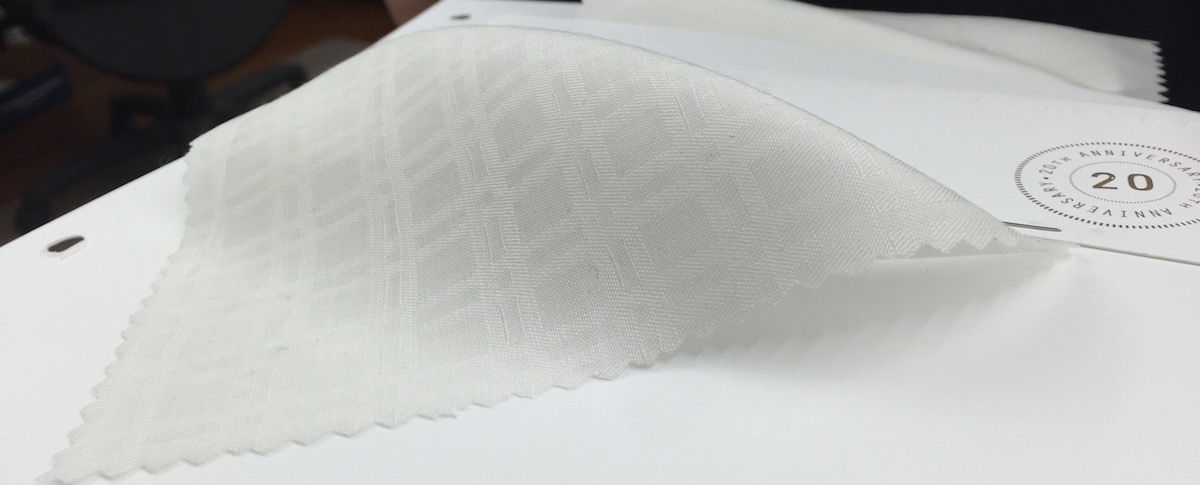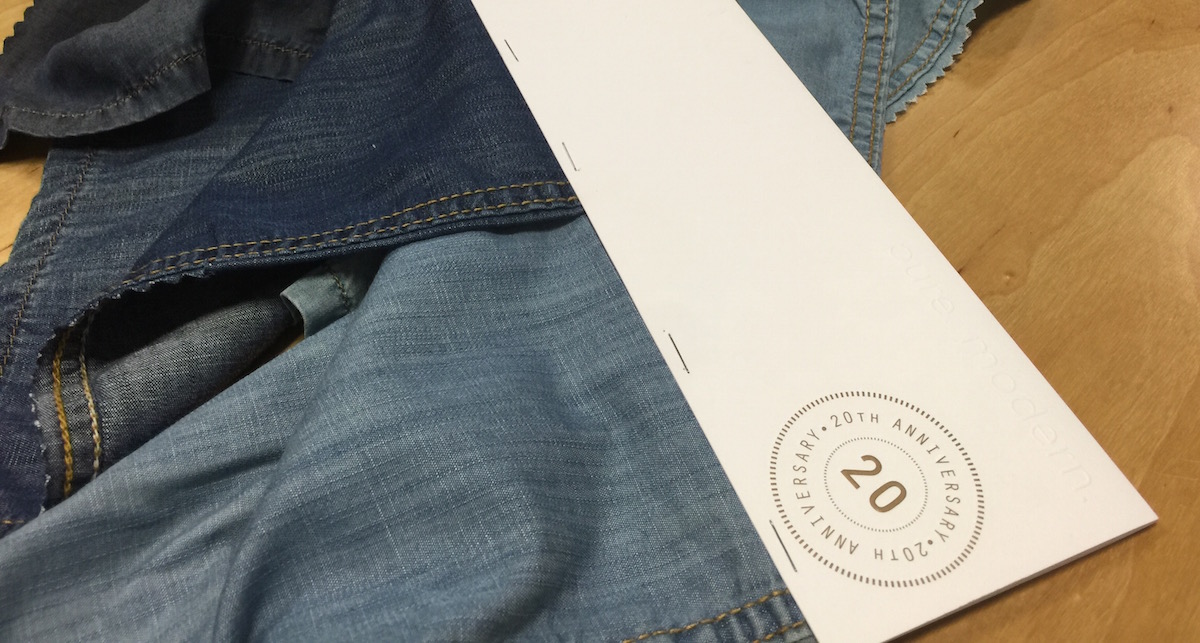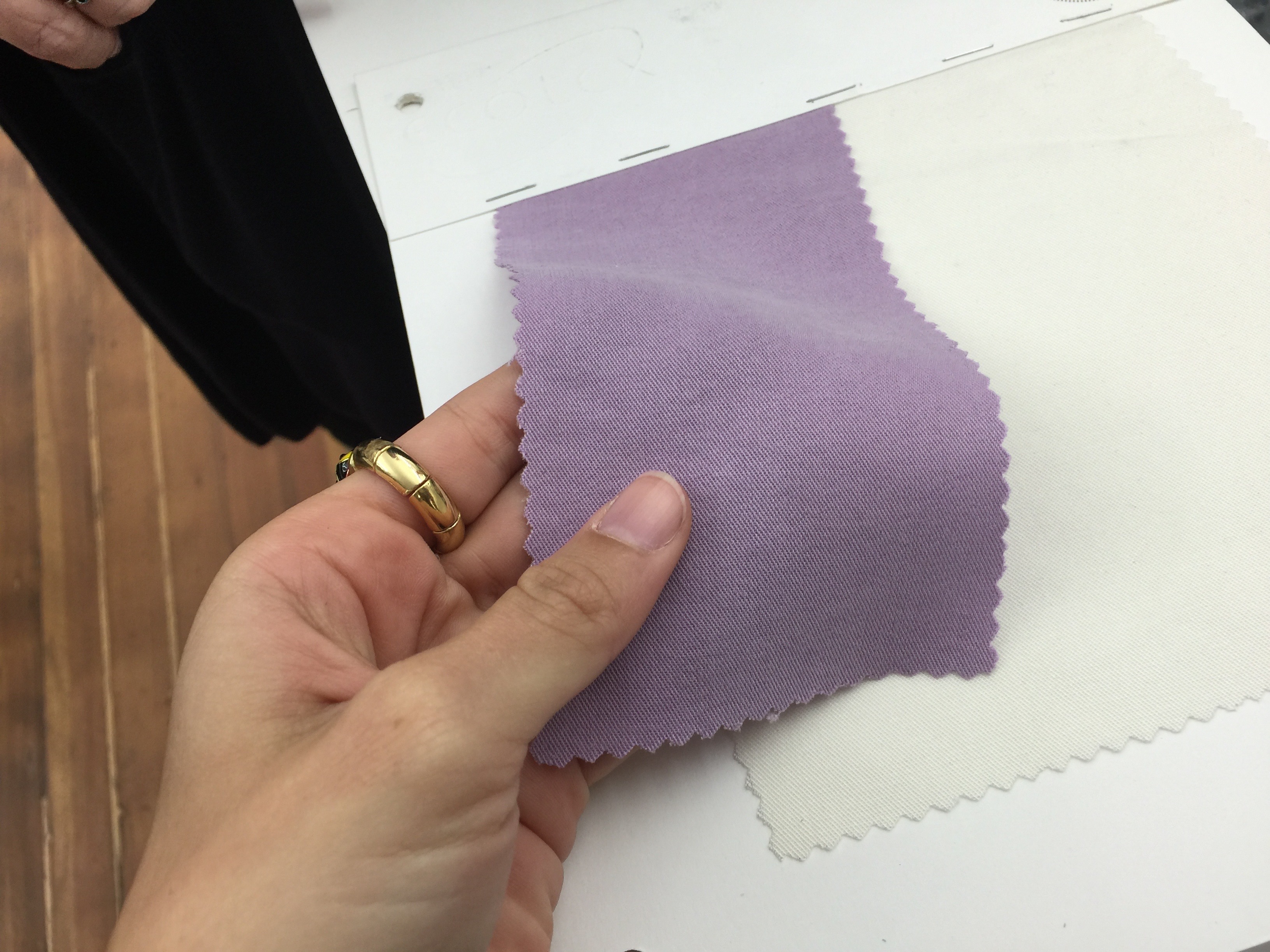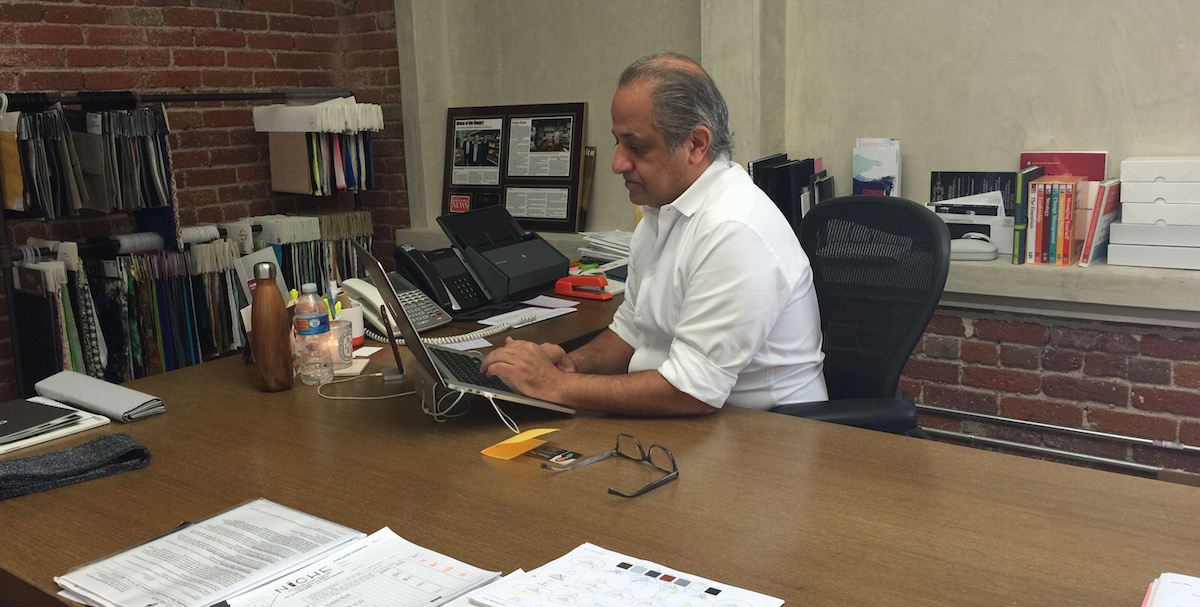
Eco-friendly fashion born in South Park
Textile and fashion manufacturer Ecotex was one of the first companies to bring eco-friendly fabrics to the United States.
South Park has been the home to one of the first fashion manufactures to bring eco-friendly fabrics to the fashion industry in the United States for over 20 years.
Eco-friendly fabrics look no different from any other apparel. They come in all colors like white and black to bright neon orange. But, eco-friendly fabrics are exceptionally soft and luxurious, more so than any other fabric like cotton or polyester.
“It’s unbelievably soft,” Helene Stein, who works for Ecotex, explained about the eco-friendly fabrics.
Ecotex was created by Raphael Javaheri in 1992. The textile and clothing manufacturer prides itself on creating quality and environmentally friendly products.
“I just wanted to do something new and different to see where I could put myself,” Javaheri said about why he started an eco-friendly textile company. “The eco-friendly part was very important to me,” he added.
Stein agreed that she enjoys being a part of a fashion business that is doing something different.
Javaheri said it all started when he became interested in a fiber called lyocell that a company in England had invented.
According to the Natural Resources Defense Council or NRDC, lyocell comes from eucalyptus trees. Compared to organic cotton, lyocell uses less water, less land and less heat to produce.
Organic cotton takes about 780 gallons of water per pound of fiber to produce, which is only enough to make one t-shirt, according to the NRDC. Lyocell however, uses 154.7 gallons of water per pound of fiber. Lyocell later gained the brand name Tencel.
“At the time, it was the first new fiber in 30 years that was developed in the world,” Javaheri said, “the last fiber in the world prior to that was polyester.”
Being one of the first to bring Tencel to the U.S. quickly gained Ecotex a name for itself.
“We went from zero to $20 million in three years,” Javaheri exclaimed.
After a few years of getting the process of using Tencel down to a science, Ecotex began selling to clothing brands all over the world, according to Javaheri.
But using eco-friendly fibers isn’t the only way Ecotex is sustainable. Javaheri said he insists on using Azo free dyes. According to the Federal Institute for Risk Assessment, Azo dyes can cause health risks, since they contain toxic chemicals.
In addition to using eco-friendly dyes, Ecotex also works with factories that share the same sustainable vision.
Javaheri said Ecotex also works with factories that turn their waste water into grey water.
“Instead of just dumping it into the oceans, we work with factories who take the used water, it goes through a process and becomes grey water, and then it's used to flush toilets, to water the plants, to do other things that doesn’t harm humans,” Javaheri said.
Not only is Tencel environmentally friendly, but it’s also incredibly comfortable. Javaheri said Tencel is different from other types of fibers because it is “very smooth, very silky and very sexy.”
While Ecotex’s main business has sold fabrics to other companies, the textile manufacturer is now starting two eco-friendly clothing lines called, “The Beginning Of” and “Evoq”. Evoq is an athletic apparel clothing line.
Ecotex is adding anti-bacteria to the fabrics in Evoq, which will keep the fabric smelling fresh, according to Javaheri. They are also using nanotechnology that will make it stain free.
“If someone pours a glass of red wine, it would just roll off,” Javaheri said, “It wouldn’t penetrate the fabric.”
While these fabrics may sound luxurious, they are not anymore expensive than non-eco-friendly clothes. For example, Javaheri said basic t-shirts go for roughly $20, and more complicated pieces sell for about $50.
“We try to be under $100 retail,” Javaheri said, “That’s a good sweet spot for us.”
Currently pieces from The Beginning Of line are only being sold through wholesale and showrooms. Ecotex plans on launching its own e-commerce and social media platforms.
According to Javaheri, the majority of Ecotex’s customers are millennials. He said he thinks they are into anything that is local, organic, fresh and eco-friendly.
“They want to know where it is coming from, and they want to know how it gets made,” Javaheri exclaimed. He said milennials are the most aware about global warming and being sustainable.
But 19-year-old Samuel Sunito, who lives in the South Park area, said he does not seek out eco-friendly clothes.
“For me it’s normally just quality, just making sure it is the right fit. Those are the two things that I look for,” Sunito said about what he looks for when he goes shopping.
Sunito said he thinks eco-friendly fashion is not something many people actively look for.
“It’s not something that comes up,” Sunito explained, “It’s nice if I see that it is made in the USA, but it’s more of an after thought.”
Javaheri explained that the key part to being successful in the eco-friendly fashion business is making sure that the products are fashionable to get milennials like Sunito to make a purchase.
“At the top of the list we are eco-friendly, but if our stuff looks like crap no one’s going to buy it,” Javaheri said, “So we have to have all of that fashion sense, and then the added bonus is also that it is eco-friendly.”







